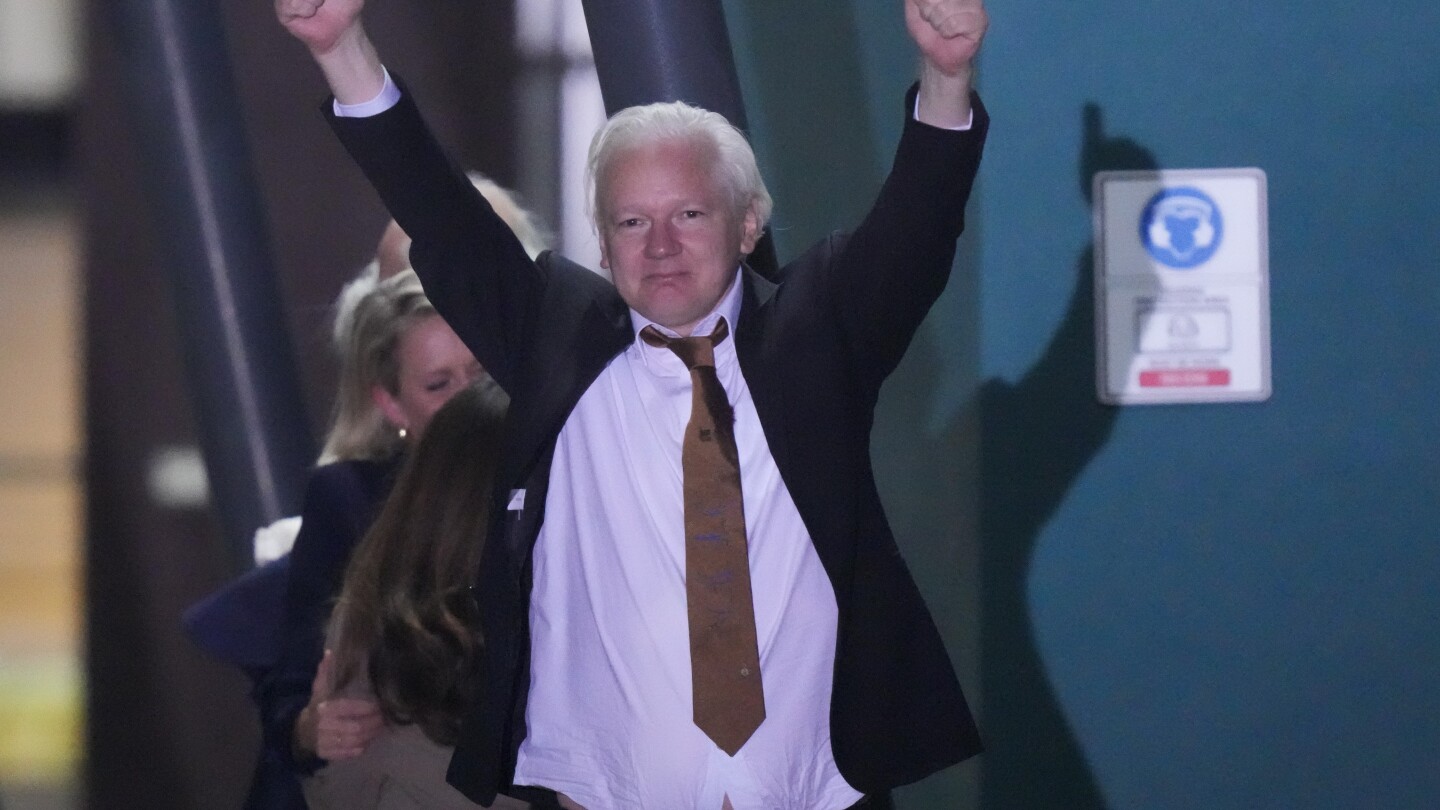WikiLeaks founder Julian Assange returned to his homeland Australia aboard a charter jet on Wednesday, hours after pleading guilty to obtaining and publishing U.S. military secrets in a deal with Justice Department prosecutors that concludes a drawn-out legal saga.
The criminal case of international intrigue, which had played out for years, came to a surprise end in a most unusual setting with Assange, 52, entering his plea in a U.S. district court in Saipan, the capital of the Northern Mariana Islands. The American commonwealth in the Pacific is relatively close to Assange’s native Australia and accommodated his desire to avoid entering the continental United States.
Assange was accused of receiving and publishing hundreds of thousands of war logs and diplomatic cables that included details of U.S. military wrongdoing in Iraq and Afghanistan. His activities drew an outpouring of support from press freedom advocates, who heralded his role in bringing to light military conduct that might otherwise have been concealed from view and warned of a chilling effect on journalists. Among the files published by WikiLeaks was a video of a 2007 Apache helicopter attack by American forces in Baghdad that killed 11 people, including two Reuters journalists.
Assange raised his right fist as he emerged for the plane and his supporters at the Canberra airport cheered from a distance. Dressed in the same suit and tie he wore during his earlier court appearance, he embraced his wife Stella Assange and father John Shipton who were waiting on the tarmac.



because most are cowards
I’d say because most follow an ethics code, as much as I feel there was a public interest in those documents coming out, but with proper sanitation to protect lives.
how was he supposed to protect anyone against the greatest surveillance state ever?
I was talking about protecting the Afghani informants from the Taliban.
— Zabihullah Mujahid
— Julian Assange
Assange is so casual about the potential human cost of his actions. The guy is a prick.